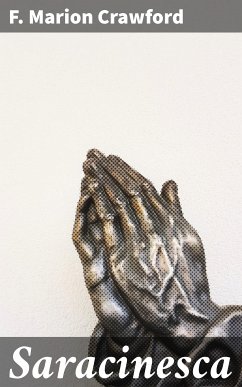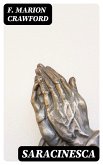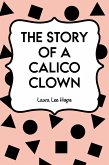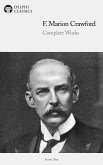In 'Saracinesca', F. Marion Crawford masterfully weaves a captivating narrative that unfolds against the backdrop of late 19th-century Italy, exploring themes of love, ambition, and the intricacies of social class. This novel is characterized by its rich, evocative prose and deep psychological insight, crafting a vivid tapestry of familial bonds and societal expectations. Set in the picturesque city of Rome and the surrounding regions, Crawford's depiction of the Saracinesca family allows readers to delve into the complexities of its members, particularly the passionate and headstrong young heir, Giovanni. The book stands as a reflection of the era's cultural shifts and the struggles between tradition and modernity. F. Marion Crawford, an American author with a penchant for Italian culture, was profoundly influenced by his experiences abroad, including his extensive travels and long-term residence in Italy. His firsthand knowledge of the Italian social landscape informs the authenticity of the characters and settings in 'Saracinesca'. Crawford's unique background, combined with his literary ambitions, allowed him to create a story that resonates with deep emotional truths while remaining accessible to a broad audience. 'Saracinesca' is highly recommended for readers who appreciate rich character development and an exploration of timeless themes. It serves not only as a powerful tale of family and love but also as an insightful commentary on the social dynamics of its time. Crawford's ability to blend intricate storytelling with profound thematic concerns ensures that this novel remains a compelling read for anyone interested in the complexities of human relationships.
Dieser Download kann aus rechtlichen Gründen nur mit Rechnungsadresse in A, B, BG, CY, CZ, D, DK, EW, E, FIN, F, GR, H, IRL, I, LT, L, LR, M, NL, PL, P, R, S, SLO, SK ausgeliefert werden.









